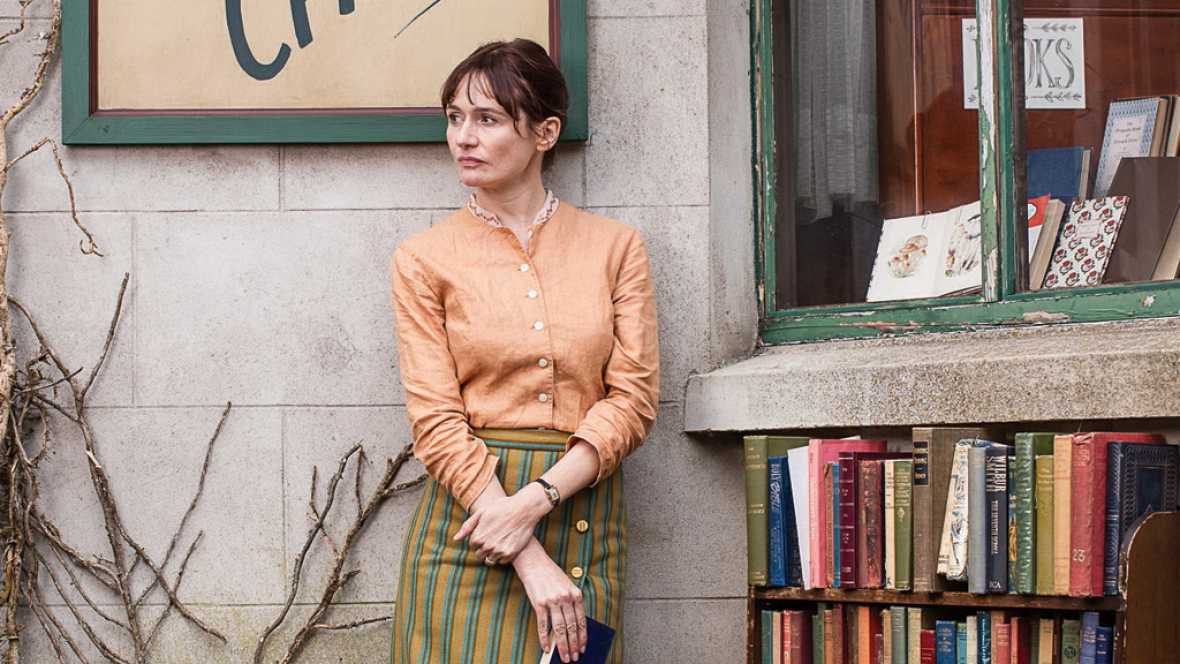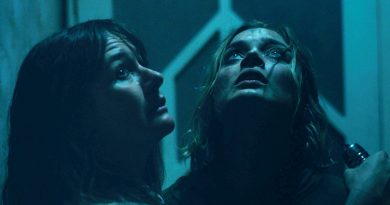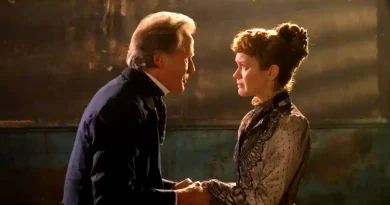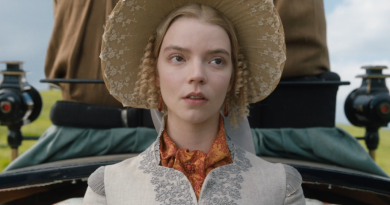The Bookshop (PG) | Close-Up Film Review

Dir. Isabel Coixet, UK/Spain/Germany, 2017, 113 mins
Cast: Emily Mortimer, Bill Nighy, Patricia Clarkson, Honor Kneafsey, James Lance
Review by Carol Allen
Set in 1959, a similar time to the recent “On Chesil Beach”, “The Bookshop” explores a different aspect of English manners and repressions of the time.
Based on a novel by Penelope Fitzgerald, it tells the story of Florence (Emily Mortimer), ten years a widow, who opens a bookshop in a small East Anglian town. The shop is in a derelict property known as The Old House and Florence falls foul of the doyenne of the town Violet Gamart (Patricia Clarkson), who wants to turn the premises into an arts centre. As the locals show little interest in either literature or the other arts, neither idea sounds like an easy winner. Florence does though have the support of local recluse Mr Brundish (Bill Nighy), whom she introduces to the novels of Ray Bradbury, which he devours with relish.
It’s a story which could have been told in a number of ways. Perhaps as a gentle comedy of English manners, eccentricity and dogged determination or a poignant drama in miniature of power stifling and frustrating creativity and initiative. The film’s Spanish director Isabel Coixet chooses a style which is melancholy, more literary than cinematic, very leisurely and despite impeccable and appealing performances from Mortimer and Nighy, rather un-English. Perhaps Ms Coixet’s background and the international nature of the production – shot in Spain and Northern Ireland with German financial input – could have something to do with that.
Having said that there is a lot to enjoy in the film, particularly for book lovers. For a start there are the books Florence decides to stock, including the aforesaid works of Bradbury and the literary scandal sensation of the period, Nabokov’s “Lolita”, which brings the whole town’s attention to the bookshop, though frustratingly we never find out how many copies Florence sells. There are also several inconsistencies in the story however. For example we see Florence being refused financial backing by the local bank manager, yet she then, with a little practical help from locals who have befriended her, seems to have no difficulty in refurbishing the house into a very attractive bookshop with beautifully polished and expensive looking oak floors and bookshelves. No sign of the dereliction, rat infestation and damp, which we’re told the Old House suffers from.
The literary nature of the story is emphasised through a narrated voice over, beautifully delivered by an uncredited Julie Christie. The identity of the narrator is intriguingly not revealed until the very end. The early communications to Florence from the hermit like Mr Brundish are by letter spoken by Nighy deadpan into the camera – a dramatic device which is however ultimately abandoned in favour of a couple of beautifully played scenes between them with a very fifties undertone of unexpressed romance. Mortimer as the quietly determined Florence, still wistfully mourning her late husband, is a strongly empathetic character and both she and Nighy play perfectly to the period.
A strong supporting cast includes James Lance as a somewhat ambiguous and rather smarmy local character who could be either friend or foe to Florence and a delightful performance from 14 year old Honor Kneafsey as Christine, the local girl with little interest in books but a talent for organisation, who helps her in the bookshop. The usually superb Clarkson however as the manipulative Mrs Gamart looks uncomfortable in her gorgeous fifties frocks and plays the role somewhat like the Wicked Witch with an overlay of false charm.
This is an unusual, flawed and somewhat inconsistent piece of storytelling but worth seeing for its charm, literary content and particularly for Ms Mortimer’s central performance.



